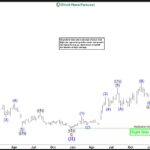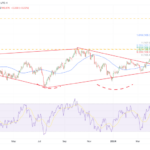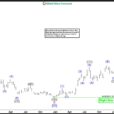
Overview: The US dollar is firmer against most of the major currencies. Japanese and Indian markets were closed for holidays and a weaker than expected flash EMU PMI helped keep the euro pinned near this week’s lows. Although the EU seemed to thrown UK’s embattled May a lifeline with some compromise wording in a draft declaration, the challenge remains the same–Parliament’s approval. Asian equities were mostly lower, and the MSCI Asia Pacific Index has fallen for a third consecutive week. It has risen in only one week since September 21. Chinese markets led this week’s losses with the Shanghai Composite off 3.5% and the Shenzen Composite down 5.3%. European equities are firm, but the Dow Jones Stoxx 600 is still off over 1% on the week. Bond yields are mostly softer, with Italy’s 10-year benchmark yield off eight basis points to bring this week’s decline to 22 bp, which is quite remarkable given the poor reception to this week’s auctions. Oil prices are trading heavily, and both WTI and Brent are headed for the seventh week of losses. Yesterday, the South African central bank hiked rates (25 bp to 6.75%) for the first time in more than two years. It was a split decision, which helped give it a dovish aura. The rand is giving back most of yesterday’s gains.
Asia Pacific
China announced yesterday that retroactive to November 7, it will exempt foreign institutional investors from taxes on interest income from onshore bond purchases. The exemption will last three years, according to press reports. China is experiencing capital outflows, despite the controls, illustrated by the more than $85 bln decline in reserves this year. The yuan slipped marginally this week and has spent the month alternating between weekly gains and declines this month leaving it virtually flat so far in November.
Yesterday, Japan reported headline inflation rose to 1.4% in October from 1.2% in September. The BOJ targets core inflation, which excludes fresh food, and that was unchanged at 1.0%. However, it still exaggerates the price pressures in Japan. When fresh food and energy are excluded, consumer prices have risen 0.4% from a year ago, which is an unchanged pace. The dollar is little changed on the week against the yen. It finished last week near JPY112.85, where a roughly $765 mln expiring option is struck. The technical indicators are still heavy, warning of the near-term risk to return to the week’s low set on Tuesday near JPY112.30.















